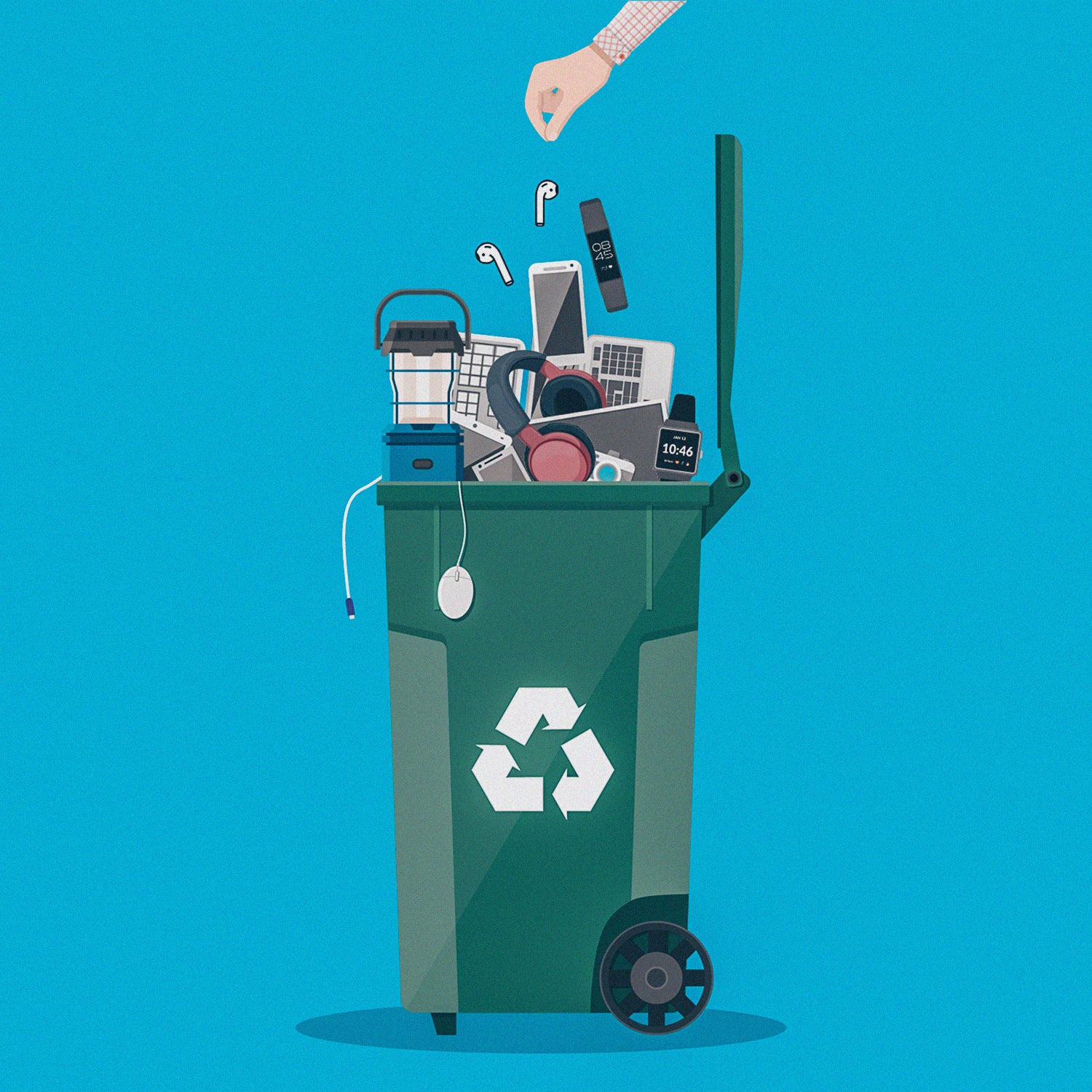Environmental Stewardship Made Easy: Choose R2 Certification Electronics Recycling
Environmental Stewardship Made Easy: Choose R2 Certification Electronics Recycling
Blog Article
Elevate Your E-Waste Monitoring With R2 Accreditation: an Extensive Overview
One trick method to elevate e-waste administration techniques is by achieving R2 accreditation. By discovering the benefits and processes associated with R2 certification, a much deeper understanding of just how it can revolutionize e-waste management techniques arises, losing light on a path towards sustainability and honest disposal methods.
Relevance of E-Waste Monitoring

When e-waste is not managed properly, these toxic compounds can permeate into the ecological community, causing damage to wildlife and potentially getting in the food cycle, posing risks to human wellness. In addition, the improper disposal of e-waste contributes to air pollution and greenhouse gas exhausts, worsening environment change and ecological destruction.

Benefits of R2 Qualification

To start with, R2 certification boosts reliability by showcasing a company's dedication to sustainable techniques. It assures clients, companions, and stakeholders that the company sticks to rigorous standards for e-waste monitoring - r2 certification. This credibility can cause raised count on and enhanced partnerships with clients who focus on ecological duty
Secondly, R2 accreditation assists minimize risks related to incorrect e-waste disposal. By adhering to the rigorous guidelines stated by the accreditation, companies can decrease the chance of data breaches, environmental contamination, and legal consequences. This positive technique safeguards the firm's online reputation and minimizes potential obligations.
Finally, R2 accreditation demonstrates a commitment to environmental stewardship - r2 certification. By properly handling electronic waste with accredited processes, organizations contribute to the conservation of resources, reduction of pollution, and promotion of a round economy. This dedication not just profits the setting however likewise lines up with developing consumer expectations for lasting organization techniques
R2 Qualification Process Summary
Having actually developed the benefits of R2 accreditation in advertising integrity, danger mitigation, and environmental stewardship, it is essential to currently detail the in-depth process associated with getting this qualification. The R2 accreditation process starts with a complete evaluation of the organization's functional look at this website policies and procedures additional info to make certain compliance with the R2 standard. This first evaluation is essential in recognizing any type of gaps that require to be dealt with before continuing even more.
As soon as the organization's techniques line up with the R2 basic needs, an independent third-party auditor carries out an on-site audit to evaluate the application and effectiveness of these methods. This audit includes a detailed review of documents, interviews with team, and physical evaluations of centers to verify conformity.
Following a successful audit, the company receives a qualification decision based on the auditor's searchings for. If approved, the company is granted R2 accreditation, showing its commitment to accountable e-waste management. It is very important to note that keeping R2 certification needs recurring compliance with the requirement's needs and periodic audits to guarantee ongoing adherence to ideal practices in e-waste recycling and disposal.
Secret Standards for R2 Conformity
A vital facet of attaining R2 compliance is guaranteeing that all digital waste (e-waste) handling centers fulfill stringent environmental and security criteria. To adhere to R2 requirements, organizations should adhere to crucial standards that concentrate on liable e-waste monitoring practices. These criteria include executing a documented environmental, health and wellness, and security administration system, making sure the safe and secure handling of data-containing tools, and performing thorough downstream due diligence to track the final location of e-waste products.
In addition, R2 conformity demands the correct screening, repair, and recycling of electronic equipment to extend its useful life and minimize environmental influence. Facilities looking for R2 accreditation need to likewise prioritize worker wellness and safety and security by giving needed training, personal protective equipment, and a secure workplace. Additionally, maintaining thorough documents of e-waste processing activities and regularly undertaking audits by recognized accrediting bodies are vital parts of showing continuous conformity with R2 requirements.
Effects of Lasting E-Waste Practices
The implementation of lasting e-waste methods in accordance with R2 compliance not just ensures ecological and safety and security standards are met but also substantially influences the overall lifecycle of electronic products. By adhering to R2 requirements, electronic waste monitoring procedures become a lot more reliable, reducing the environmental impact of digital products. Lasting e-waste practices assist in the proper disposal of electronic elements, making certain that harmful materials are taken care of sensibly and do not wind up contaminating the environment.
In addition, lasting e-waste practices can add to job development in the recycling and refurbishment industries, fostering financial development while promoting environmental responsibility. Generally, the adoption of lasting e-waste methods under R2 accreditation offers as a vital action towards accomplishing an extra eco sustainable electronics sector.
Verdict
To conclude, carrying out correct e-waste monitoring practices is important for environmental sustainability and source preservation. R2 accreditation plays a crucial role in guaranteeing accountable handling and disposal of digital waste. By adhering to the rigid requirements stated by R2 standards, companies can not only lessen their ecological influence but also add to an extra lasting future for generations to come.
One secret approach to boost e-waste management methods is by achieving R2 certification. By discovering the advantages and procedures connected find more info with R2 qualification, a deeper understanding of how it can transform e-waste administration approaches arises, dropping light on a course towards sustainability and honest disposal techniques.
The R2 accreditation procedure starts with a complete evaluation of the organization's operational plans and procedures to guarantee conformity with the R2 criterion. If approved, the organization is given R2 certification, showing its commitment to responsible e-waste monitoring. In general, the fostering of sustainable e-waste methods under R2 qualification serves as a crucial step in the direction of achieving a much more eco sustainable electronic devices sector.
Report this page